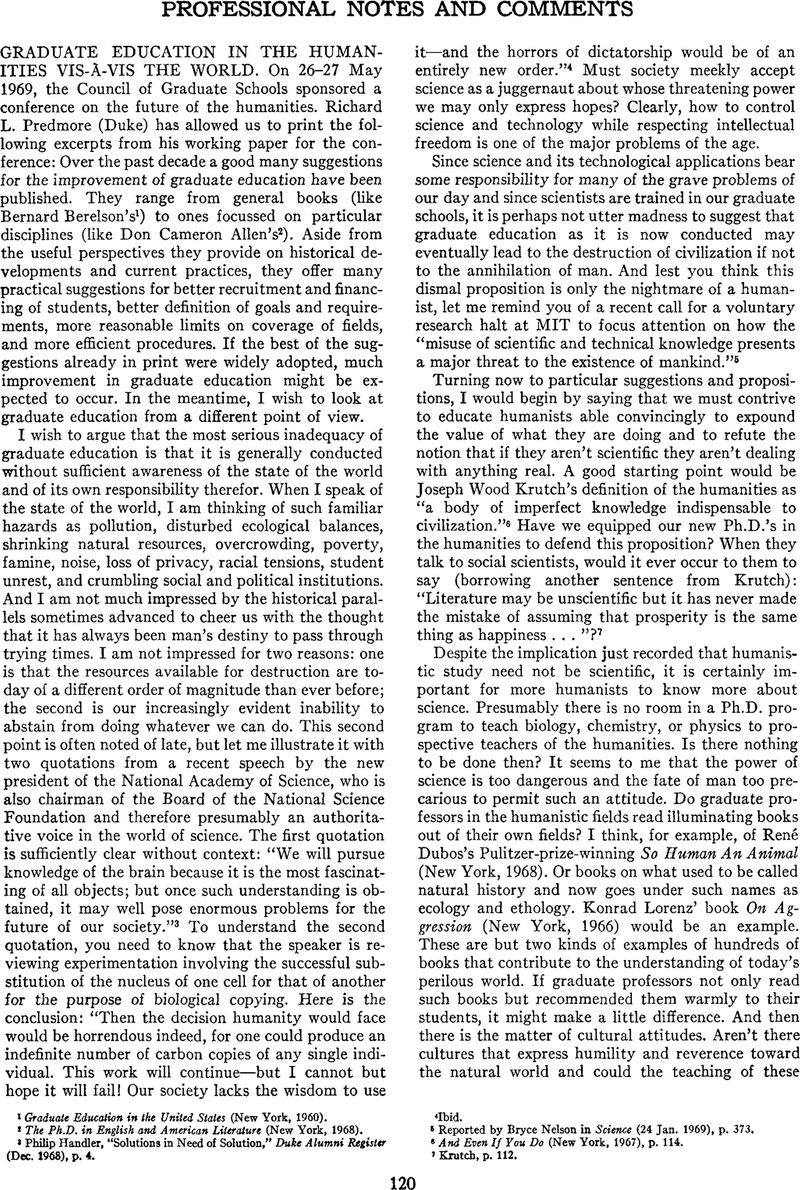No CrossRef data available.
Article contents
Professional Notes and Comments
Published online by Cambridge University Press: 02 December 2020
Abstract

- Type
- Other
- Information
- Copyright
- Copyright © Modern Language Association of America, 1970
References
1 Graduate Education in the United Stales (New York, 1960).
2 The Ph.D. in English and American Literature (New York, 1968).
3 Philip Handler, “Solutions in Need of Solution,” Duke Alumni Register (Dec. 1968), p. 4.
4 Ibid.
5 Reported by Bryce Nelson in Science (24 Jan. 1969), p. 373.
6 And Even If You Do (New York, 1967), p. 114.
7 Krutch, p. 112.
8 Quoted by Archibald MacLeish in “The Great American Frustration,” Saturday Review (13 July 1968), p. 16.
9 Quoted by Charlotte Willard from Intelligence in the Universe, in Saturday Review (Feb. 1969), p. 20.
10 “The Future of Man,” in Environment and Change (Bloomington: Indiana Univ. Press, 1968), pp. 18–19.
11 The Aim: of Education (New York, 1961) p. 98.
12 Quoted extensively (along with others in the same vein) by Maxwell H. Goldberg “Technological Change and the Humanities,” The Educational Record (Fall 1965), pp. 390–393. See also Ashby's “Machines, Understanding, and Learning,” The Graduate Journal (Spring 1967).
13 James S. Ackerman speaking at a “Conference on the Future of the Humanities,” sponsored by Daedalus, on 16–18 May 1968.


